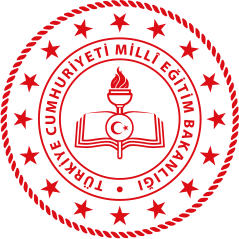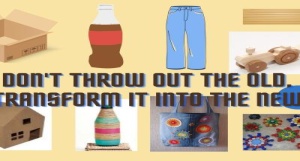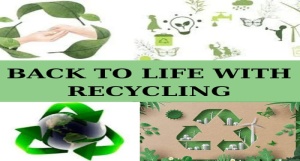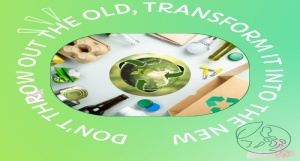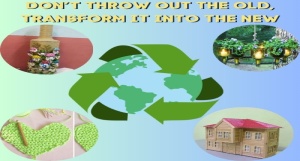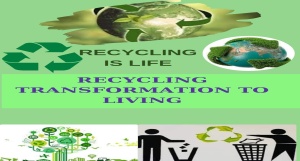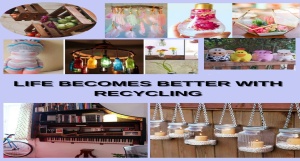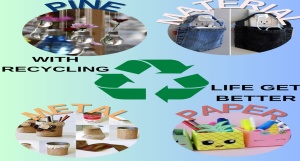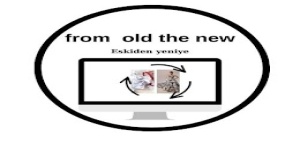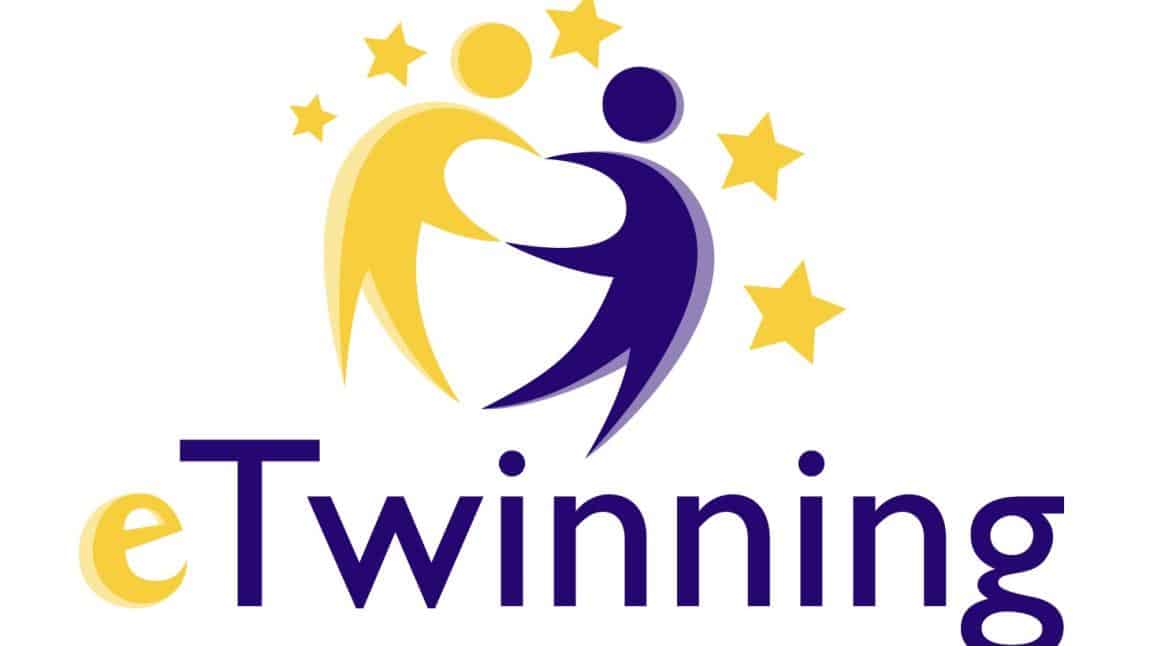
DON'T THROW OUT THE OLD, TRANSFORM IT INTO THE NEW ETWINNING PROJESİ
Don’t Throw Out The Old,Transform Into The New etwinning projesi Türkiye,Yunanistan ve Litvanya’dan katılan 13 üye okul ile devam etmektedir.Geri dönüşüm ve çevre bilincinin oluşturulmasına yönelik faaliyetler yapılmaktadır.Kağıt,kumaş, cam vb maddelere yönelik geri dönüşüm çözümleri ve proje çalışmaları üretilerek,Web 2.0 araçları ve yapay zeka araçları kullanılarak farkındalık kazanmaları amaçlanmaktadır.
1. To draw the attention of students and their families to issues such as environmental pollution and climate change, such as the damage caused by waste to the environment, air pollution, global warming, groundwater pollution, damage to vegetation,
2. To draw students' attention to the damage caused by environmental pollution caused by humans to humans and other living things,
3. To draw the attention of students, their families and the society to the climatic changes caused by environmental pollution by disrupting the balance of the ecosystem,
4. To ensure that students are sensitive to environmental pollution and have awareness of this problem by producing solutions, and that they do not remain insensitive to changing climate conditions and raise awareness,
5. To develop environmental protection awareness in our students,
6. To ensure that our students work collaboratively on a project by taking responsibility for the environment and climate change,
7. To make our students aware of how we can reduce the damage they cause to the environment by upcycling solid wastes that cause environmental pollution,
8. To increase the self-confidence of our students who take part in the project,
9. To ensure that our students use technology effectively while doing research,
10. To enable them to discuss and exchange ideas about environmental pollution and climate change, which is a problem for all countries, with their peers from other countries and cities,
11. To provide our students who take part in the project with skills such as critical thinking, questioning and analysis,
12. To enable our students who upcycle solid waste to use their manual skills and imagination,
13. To enable our students to create a new product by repairing, renewing or using discarded materials for another purpose,
14. To raise students' awareness about the contribution of upcycling a product that would be thrown away to both the protection of the environment and the country's economy,
15. To ensure that our upcycling students experience the joy of success when they create a new product,
17. To ensure that our students acquire a hobby that they can do in their spare time,
18. To ensure that students and teachers participating in this project use web 2.0 tools actively.
1. To raise awareness about the environment and climate change among students in our schools,
2. To ensure that they become sensitive individuals who know the effects of solid waste thrown into nature on the environment and climate,
3. To ensure that individuals make solid waste reusable through upcycling,
4. To provide our students with new hobbies while upcycling solid waste,
5. Seeing the development of manual skills and imagination of our students who upcycle solid waste,
6. To ensure that solid waste materials thrown into the trash become individuals that contribute to the country's economy by being recycled,
7. To ensure that our students are not only consumers but also producers,
8. To ensure that students and teachers use web 2.0 tools effectively and actively in lessons,
9. To provide students with competencies such as collaborative working skills, responsibility-taking skills and peer learning skills at the end of the project,
10. Learning to work with different disciplines and gaining the ability to view achievements from multiple perspectives,
11. To enable students to have cultural exchanges with students from different schools and different countries,
12. Developing behaviors that will prevent environmental pollution by drawing the attention of students, families and society to the climatic changes caused by environmental pollution by disrupting the balance of the ecosystem.
